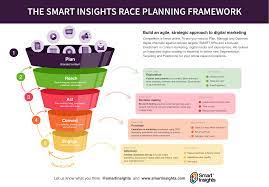The Importance of a Digital Marketing Plan
In today’s fast-paced digital landscape, having a well-thought-out digital marketing plan is crucial for businesses looking to succeed online. A digital marketing plan serves as a roadmap that outlines your goals, target audience, strategies, and tactics to reach and engage with potential customers effectively.
One of the key benefits of having a digital marketing plan is that it helps you stay focused and aligned with your business objectives. By clearly defining your goals and identifying the steps needed to achieve them, you can ensure that your efforts are directed towards activities that drive results.
Furthermore, a digital marketing plan allows you to better understand your target audience. By conducting research and creating buyer personas, you can tailor your messaging and content to resonate with your ideal customers, increasing the likelihood of conversion.
Another advantage of having a digital marketing plan is the ability to track and measure your performance. By setting specific KPIs (Key Performance Indicators) and monitoring metrics such as website traffic, conversion rates, and engagement levels, you can assess the effectiveness of your campaigns and make data-driven decisions to optimise your strategy.
In conclusion, a well-crafted digital marketing plan is essential for businesses seeking to establish a strong online presence and drive growth in today’s competitive digital landscape. By outlining clear objectives, understanding your audience, and measuring performance, you can create targeted campaigns that deliver tangible results for your business.
Essential FAQs for Crafting and Executing an Effective Digital Marketing Plan
- What is a digital marketing plan and why is it important?
- How do you create a digital marketing plan for a small business?
- What are the key components of a successful digital marketing plan?
- How can I measure the effectiveness of my digital marketing plan?
- What are some common challenges businesses face when implementing a digital marketing plan?
What is a digital marketing plan and why is it important?
A digital marketing plan is a strategic document that outlines an organisation’s goals, target audience, strategies, and tactics for leveraging digital channels to achieve marketing objectives. It serves as a roadmap for guiding businesses in their online marketing efforts and ensuring that resources are allocated effectively to maximise results. Having a digital marketing plan is crucial because it helps businesses stay focused, align their activities with overall objectives, understand their target audience better, track performance through measurable metrics, and make informed decisions to optimise campaigns for success in the competitive digital landscape.
How do you create a digital marketing plan for a small business?
Creating a digital marketing plan for a small business involves several key steps to ensure a strategic and effective approach. Firstly, it is essential to define clear goals and objectives that align with the business’s overall vision and target audience. Conducting thorough market research to understand customer needs, preferences, and competitors is crucial in shaping the plan. Identifying the most suitable digital channels, such as social media, email marketing, SEO, and PPC, based on the target audience’s behaviour and preferences is vital. Developing a content strategy that resonates with the audience and drives engagement is also important. Regularly monitoring and analysing performance metrics to track progress and make necessary adjustments is essential for continuous improvement and success of the digital marketing plan for a small business.
What are the key components of a successful digital marketing plan?
When crafting a successful digital marketing plan, several key components play a vital role in driving results. Firstly, defining clear and measurable goals is essential to guide your strategy and track progress effectively. Understanding your target audience through detailed market research and creating buyer personas helps tailor your messaging and content for maximum engagement. Selecting the right digital channels, such as social media, SEO, email marketing, and PPC advertising, ensures a comprehensive approach to reaching your audience. Consistent monitoring and analysis of performance metrics allow for adjustments to be made in real-time to optimise campaign effectiveness. Collaboration across teams and departments within the organisation ensures alignment and seamless execution of the digital marketing plan for overall success.
How can I measure the effectiveness of my digital marketing plan?
Measuring the effectiveness of your digital marketing plan is essential to determine the success of your efforts and make informed decisions for future strategies. Key performance indicators (KPIs) such as website traffic, conversion rates, click-through rates, social media engagement, and lead generation can provide valuable insights into the performance of your campaigns. Utilising analytics tools like Google Analytics, social media analytics platforms, and CRM systems can help track and monitor these metrics effectively. By analysing data and metrics regularly, you can identify areas of improvement, optimise your campaigns, and ensure that your digital marketing plan is delivering the desired results.
What are some common challenges businesses face when implementing a digital marketing plan?
When implementing a digital marketing plan, businesses often encounter several common challenges that can impact the success of their efforts. One prevalent issue is the lack of clear objectives and strategy, leading to ineffective targeting and messaging. Additionally, limited budget and resources can hinder the execution of comprehensive digital campaigns, restricting the ability to reach and engage with the target audience effectively. Another challenge is staying abreast of rapidly evolving digital trends and technologies, which requires continuous learning and adaptation to remain competitive in the online space. Overcoming these challenges through careful planning, resource allocation, and ongoing analysis is crucial for businesses to maximise the impact of their digital marketing initiatives.
